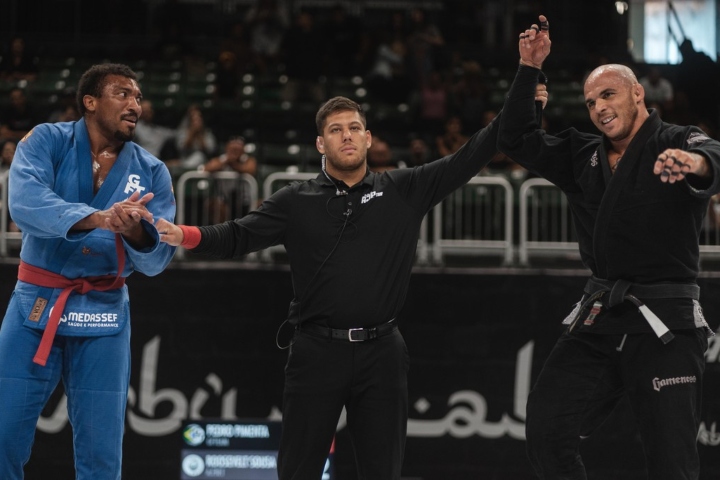In the world of Jiu-Jitsu, a single penalty point can tilt the scales between victory and defeat.
Therefore, understanding the nuances of the rules is crucial.
This was the central theme of a conversation between Abu Dhabi Jiu Jitsu Pro (AJP) and Mauricio “Russo” Gomes, the esteemed Referee Coordinator for AJP in the UAE.
Gomes, a veteran referee since 1995, shared 5 tips for avoiding common penalties in AJP tournaments.
For example, guard pulling.
Gomes says that you better make sure you have your grips before pulling guard:
One of the easiest penalties to avoid is the guard pull without grips.
When it’s time to pull, double check your grips and make sure that it’s firm, and then you can pull.
Blindly trusting your grip when you’re pulling guard may give the opponent a chance to escape it, leaving you in a subjective situation.When in doubt, go up again and redo your grip before pulling.
You also need to be disciplined about your grips:
In the heat of the fight, sometimes the athlete tries to grip and ends up with the fingers inside the sleeve or the pants.
Focus on the adjustment of your grip, a good option here is to use the thumb to go inside first and make sure that the other fingers are out.
A seemingly mundane task like tying the belt mid-match can lead to penalties if not done promptly:
When the fight is paused to adjust the gi, some competitors try to take advantage of the 20-second limit to listen to their coaches and check the scoreboard, losing even more time before getting back into the match.
This one is really easy to avoid, just focus on tying your belt and get back to fighting.
Stalling could get you in deep trouble as well:
Avoid stalling because you can pay a steep price for it.
In a scenario where the athlete is ahead on the score by one point and the regulated time is almost up, he may choose to stall.
If the acting referee decides to penalize him for it, the opponent will get one point and, by AJP rules, in case of a tie, the last one to score takes the win.
And, most importantly, you should study the ruleset:
Many athletes and professors do not pay attention to the event’s rules.
For whatever reason, when they’re losing a fight, they may think the referees went against them, but our team is only there to certify the correct application of the rules.
Want to learn more about the AJP Ruleset? You may do so on their website!

















